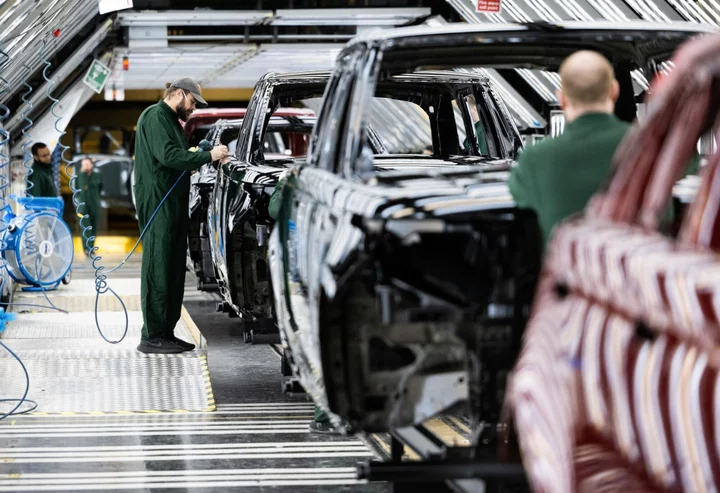British businesses said staff shortages that are forcing them to drive up wages are adding to the cost of services, underlying pressures the Bank of England wants to choke off.
S&P Global Market Intelligence said its closely watched purchasing managers survey indicated that while manufacturers are cutting the cost of goods leaving factory gates, service companies reported a steep increase in the average prices they charge. Higher costs to employ staff are being passed on to customers, S&P said Friday.
The findings highlight the wage-price spiral that prompted the central bank to accelerate its fight against inflation on Thursday with a surprise half-point increase in the benchmark lending rate to 5%. S&P said its survey showed that price pressures will continue into next year even though growth is slowing.
“While falling backlogs of work suggest this hiring trend could also fade in the coming months as the economy weakens, for now it is generating higher wage growth, in turn feeding through to still-elevated inflation pressures in the service sector,” said Chris Williamson, chief business economist at S&P Global. “Price gauges point to consumer price inflation remaining well above the Bank of England’s target into 2024.”
That conclusion strengthens the case for more rate hikes through the summer, with investors anticipating the key rate hits 6% in early 2024.
S&P said its composite PMI fell to 52.8 in June from 54 in May, below the level of 53.6 that economists had expected. The headline figure and an index tracking services both registered the slowest growth in three months. Manufacturing was shrinking at the fastest pace in six months.
“The UK economy has lost momentum again after a brief growth spurt in the spring and looks set to weaken further in the months ahead,” Williamson said. He added that growth is “faltering as the reality of higher interest rates, the increased cost of living and gloom about the outlook sets in and overrides the brief boost to spending enjoyed from the pandemic tailwind.”
Further rate hikes will “clearly add further to the likelihood of a recession later in the year, which is looking increasingly inevitable as collateral damage in the fight against inflation,” he said.

